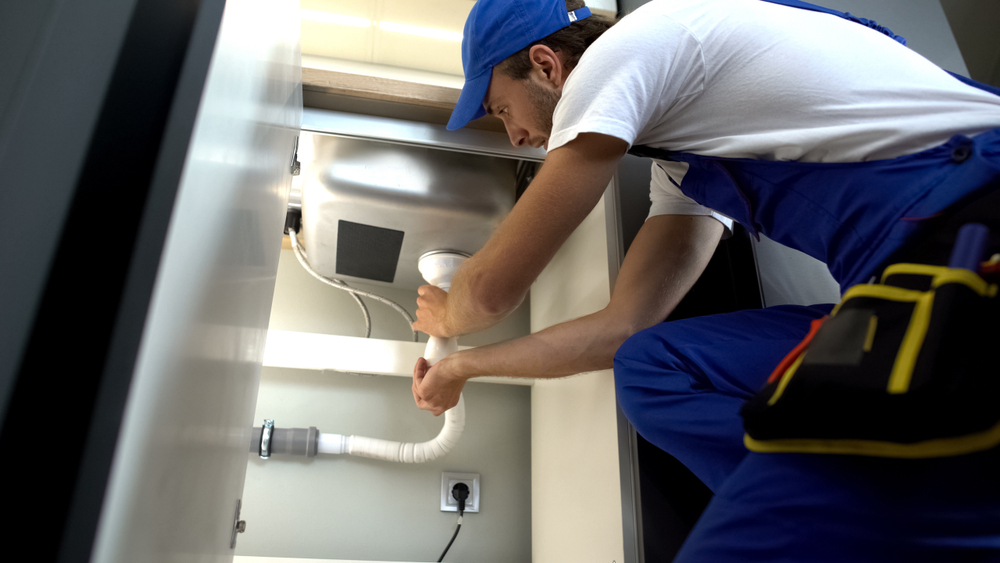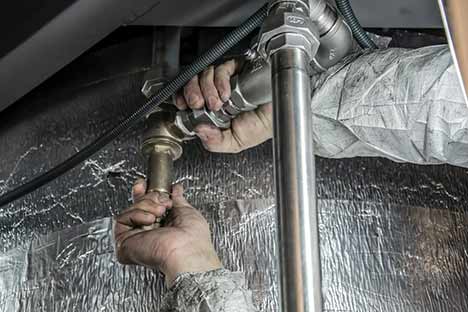Steps to Fix Urgent Plumbing Problems Before Expert Help Arrives
Visit SiteWhat're your opinions regarding Expert Tips for Managing a Plumbing Emergency Until Help Arrives?

Plumbing emergencies can strike at any time, causing stress and possible damages to your home. Whether it's a ruptured pipeline, a stopped up drain, or a leaking faucet, knowing how to manage the scenario till a specialist plumbing technician shows up can conserve you from additional problems. This short article provides essential emergency situation pipes ideas to assist you reduce damage and reclaim control throughout a plumbing situation.
Switch off the Water System
The initial step in any pipes emergency situation is to turn off the supply of water. For local concerns, such as a dripping faucet or toilet, switch off the valve near the fixture. When it comes to a significant leak or ruptured pipe, situate your home's primary water shut-off valve and turn it off quickly. Understanding the location of these shutoffs in advance can save valuable time throughout an emergency.
Turn off Your Water Heater
In particular emergency situations, such as a burst pipeline, it's wise to shut down your hot water heater. This avoids overheating or damages to the device when water stops flowing. Switch off the power supply to the hot water heater (electric or gas) and let it cool off to avoid possible risks.
Temporarily Quit a Burst Pipeline
A burst pipeline can result in substantial water damage in mins. To reduce the concern:
Call an expert plumber promptly to resolve the issue completely.
Have an Emergency Pipes Package
Prepare a fundamental pipes emergency set to take care of minor problems effectively. Your set needs to include:
Having these devices on hand can make a considerable distinction in your ability to manage emergencies.
Unclog Drains Securely.
A clogged up drainpipe can be a frustrating and messy problem. Right here's exactly how to tackle it:.
If these approaches do not function, prevent utilizing extreme pressure, as it may intensify the obstruction.
Handle Overflowing Toilets.
An overflowing toilet can cause immediate chaos. Here's what you need to do:.
Address Tiny Leakages with Momentary Repairs.
Little leaks can quickly become significant troubles if left uncontrolled. Make use of these momentary repairs until professional aid gets here:.
While these fixes aren't irreversible, they can assist lessen water loss and damages.
Manage Frozen Piping Meticulously.
In cooler environments, icy pipelines are a typical emergency situation. If you presume an icy pipeline:.
Know When to Call a Specialist.
While quick fixes can aid momentarily, particular pipes concerns call for prompt specialist focus. Call a plumbing professional if:.
Quickly getting in touch with a professional ensures the concern is settled appropriately and stops further complications.
Protect against More Damages.
Taking quick action to decrease damages can save you time and money in the future. Right here's how:.
Conclusion.
Pipes emergency situations can be frustrating, however with the appropriate understanding and devices, you can handle the scenario efficiently till aid shows up. By turning off the water system, dealing with tiny leaks, and making use of momentary fixes, you can lessen damage and maintain your home safe. Remember, these pointers are short-term remedies; always get in touch with a licensed plumbing professional to deal with the origin of the problem. Prep work and quick thinking are your ideal allies in any type of pipes emergency.
8 Helpful Tips for Managing Plumbing Emergencies at Home
If your plumbing system hasn’t failed once, wait for it because almost everyone has a story to tell. Sometimes, it could be simple emergencies such as a leaking pipe, a blocked cistern, or even a big burst pipe. In situations like this, you need to have some handy tips to save you some money and from possible damages.
Take care of minor issues early.
Sometimes, you could have avoided an emergency by taking proactive measures while it was still early. Some major plumbing emergencies can be a result of an ignored minor issue. We recommend that you have items like plumbing tapes and other related items. A plumbing tape can allow you to manage minor leaks before the plumber arrives.
Cut off the water supply.
This tip is essential in almost any type of leakage problem. For problems like minor leakages in the toilet or kitchen, turn off the supply that takes water to the affected pipes. If the leakage is a major pipe, you must shut off the supply valve to the entire building. This will help you avoid flooding your home and neighbors if you share a flat.
Know your plumbing system
Folks typically move into a new apartment without understanding the water supply around the building. This can prove disastrous if a water emergency arises and the plumber is far away. The previous tip will prove useless if you don’t practice this one. More importantly, know where your water shut-off valve is located – you’ll need that knowledge to prevent potential home floods.
Have some common handy tools
There are lots of plumbing emergencies that you can handle without hiring a plumber. That’s why you must keep some tools available always. Some tools that you can use to fix simple plumbing emergencies easily include plumbing tapes, screwdrivers, thread seal tapes, plungers, pliers, tape measures, and rubber gloves.
Insulate your pipes from cold
You’ll save yourself from many plumbing expenses if you protect your water pipes from the cold. This is because of the harmful effects that cold weather can have on your pipes. During winter, your pipes can burst from being overly expected to freezing temperatures. So, make sure insulators are there to keep the pipes working correctly.
Avoid practices that will clog your toilet.
Many people indulge in practices that can damage the plumbing system of the entire building. One of these is when they use their toilet to dispose-off garbage. They flush all kinds of things, such as paper towels, bandages, hairs, female sanitary products, etc., down the toilet. This will block your toilet in the long run, incurring unnecessary expenditures. Dump such waste in the trash instead.
Check your dials regularly.
Sometimes, there could be leakages in your home without noticing them in time. So, constantly monitor your water meter dial. If the dial is reading when there is nobody using water, this is an indicator that there is leaking. Check for leaks immediately. Call a plumber as soon as possible if you can’t find any.
https://www.constructionplacements.com/8-helpful-tips-for-managing-plumbing-emergencies-at-home/

Do you really like reading about Expert Tips for Emergency Plumbing Repairs? Put feedback further down. We would be delighted to know your views about this content. In hopes that you come back again soon. Enjoyed our article? Please share it. Help somebody else locate it. Thanks a lot for taking the time to read it.
Further Details